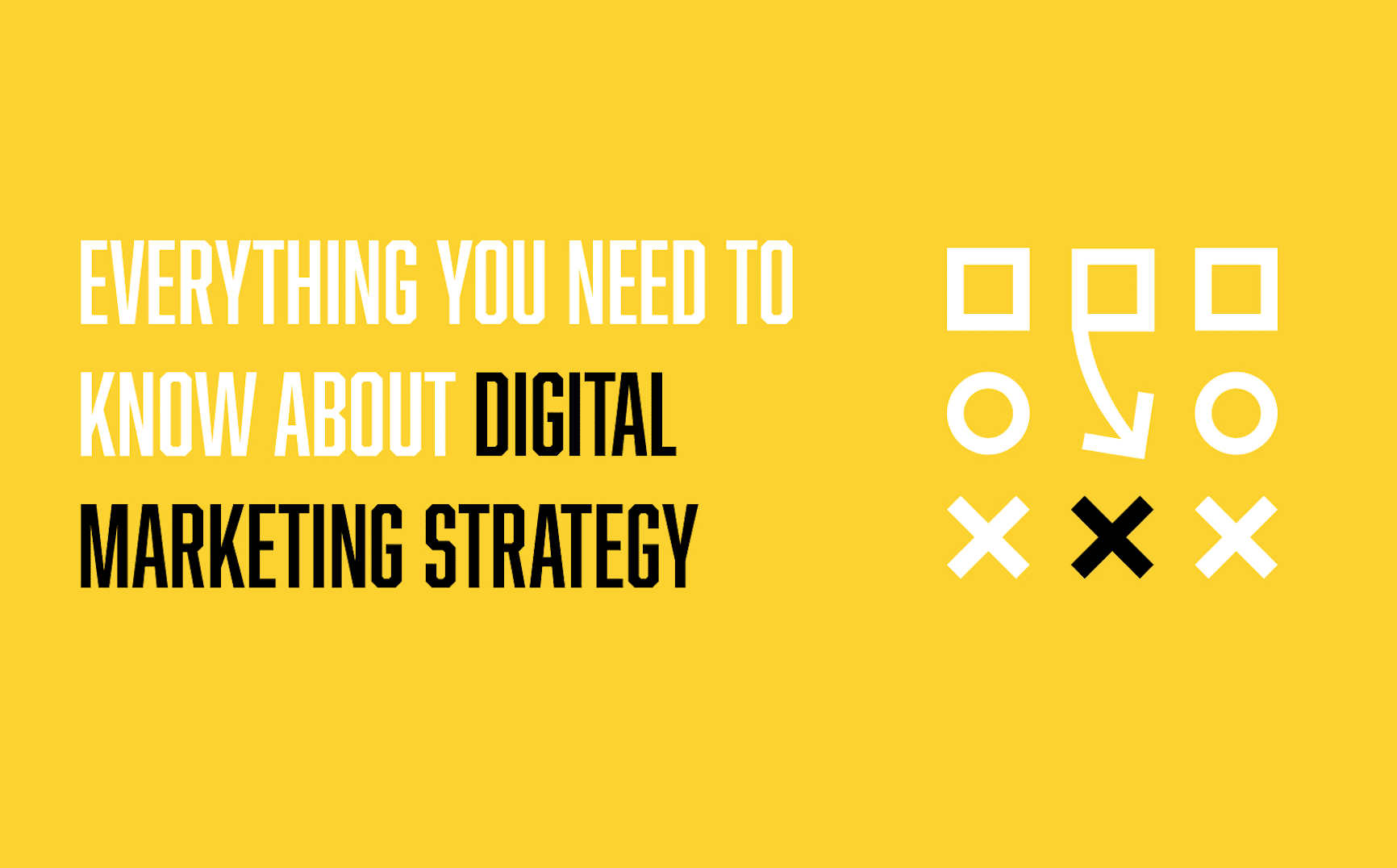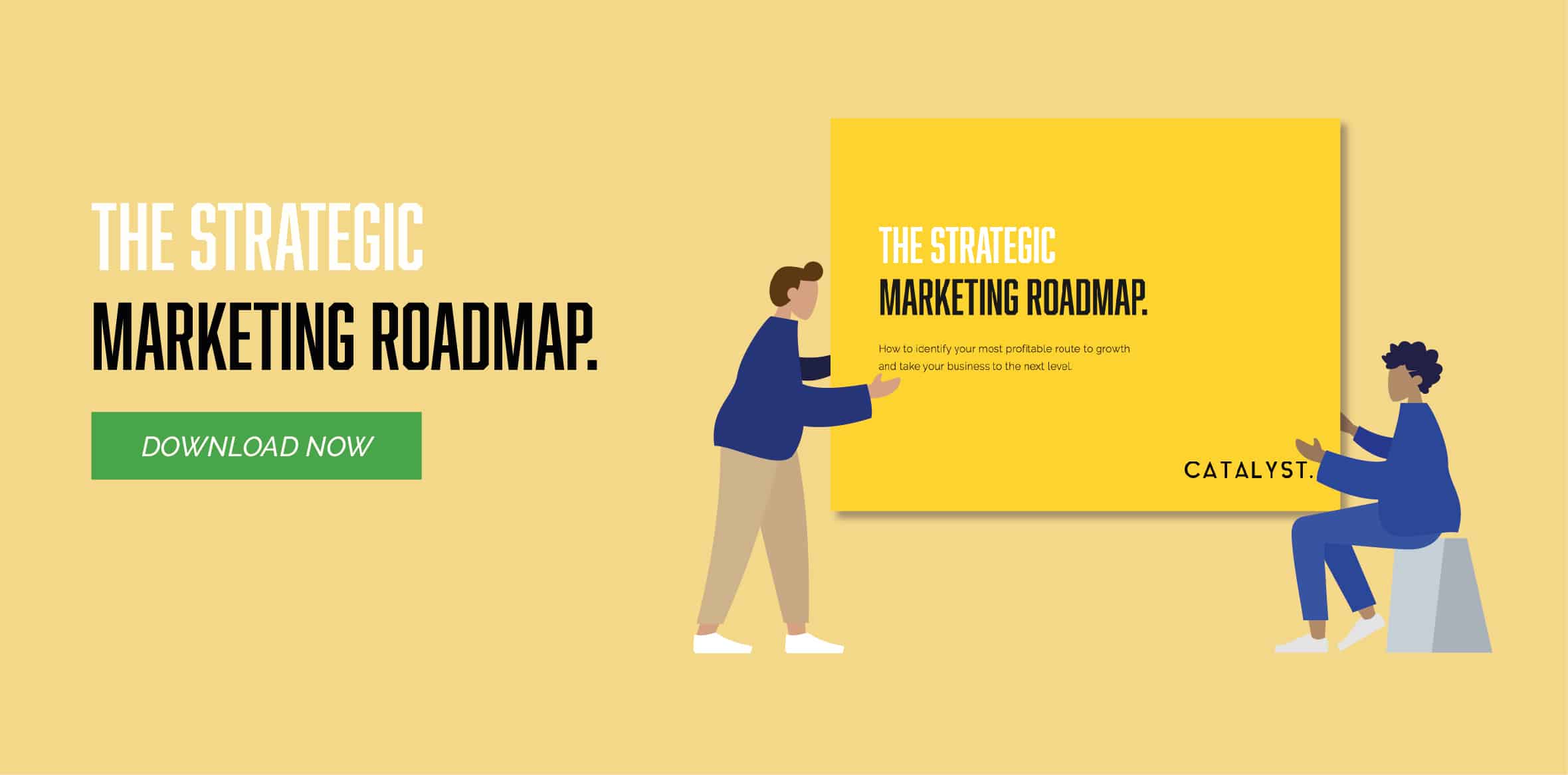No matter what you sell and who you sell it to – whether you’re B2B or B2C, you have a product or a service – digital marketing strategy is becoming more and more important in putting your stamp on the market and influencing prospects to sign on your dotted line, rather than someone else’s.
I know what you’re thinking: “Of course you’d say that, you’re a digital marketing agency trying to flog me a marketing strategy!”
Well while part of that may be true – after all we’re not going to help you to grow your business for free – the premise that claim is based on is true, too.
And while some sneaky marketing agencies out there might bend the truth to get you on board, on this occasion, the stats speak for themselves…
Marketing Strategy Stats
- 68% percent of consumers say that they now use the internet as part of their buying decision (Forrester).
- Most B2B buyers are already 57% of the way through the buying process before the first meeting with a representative (Accenture).
- 60% percent of B2B buyers are only ready to talk to a salesperson once they’ve done their own research and are well into their buyer’s journey (HubSpot).
- 82% percent of customers engaged with at least five pieces of content from their provider before deciding to request their services (Articulate).
It’s impossible to escape the fact that the way people buy has changed, both in the B2B and B2C worlds.
In fact, the way people buy in the B2C arena has had a massive impact on the way people buy in the B2B arena.
People now have more information at their fingertips online; they’re not as willing to just buy from one vendor who happened to call them any more.
It’s far easier and far more common place than ever before for your prospects to compare you with your competitors.
So taking your company’s brand colour tinted glasses off for a moment and squinting your eyes briefly to look at things from a truly neutral perspective, ask yourself this:
“If you were assessing the options online, would you choose you?”
With so many different tactics that can be put into place and so many ways to influence your prospects online, are you genuinely doing enough to grow your business?
Or are you sort of just doing a bit of what you’ve always done?
Because the fact of the matter is if you always do what you’ve always done, you’ll always get what you’ve always got.
That’s why digital marketing strategy is becoming more and more important for ambitious businesses that want to take things to another level.
And as soon as you understand what kind of marketing is right for your business, it’s easy to know what to invest in to achieve a significant return on your investment.
First, though, it’s important to understand exactly what a digital marketing strategy is and what has to go into creating one to make it a success.
{% module “module_156699689453790″ path=”/Catalyst – August 2019/Modules/Aug 2019 – Subscription form”, label=”Aug 2019 – Subscription form” %}
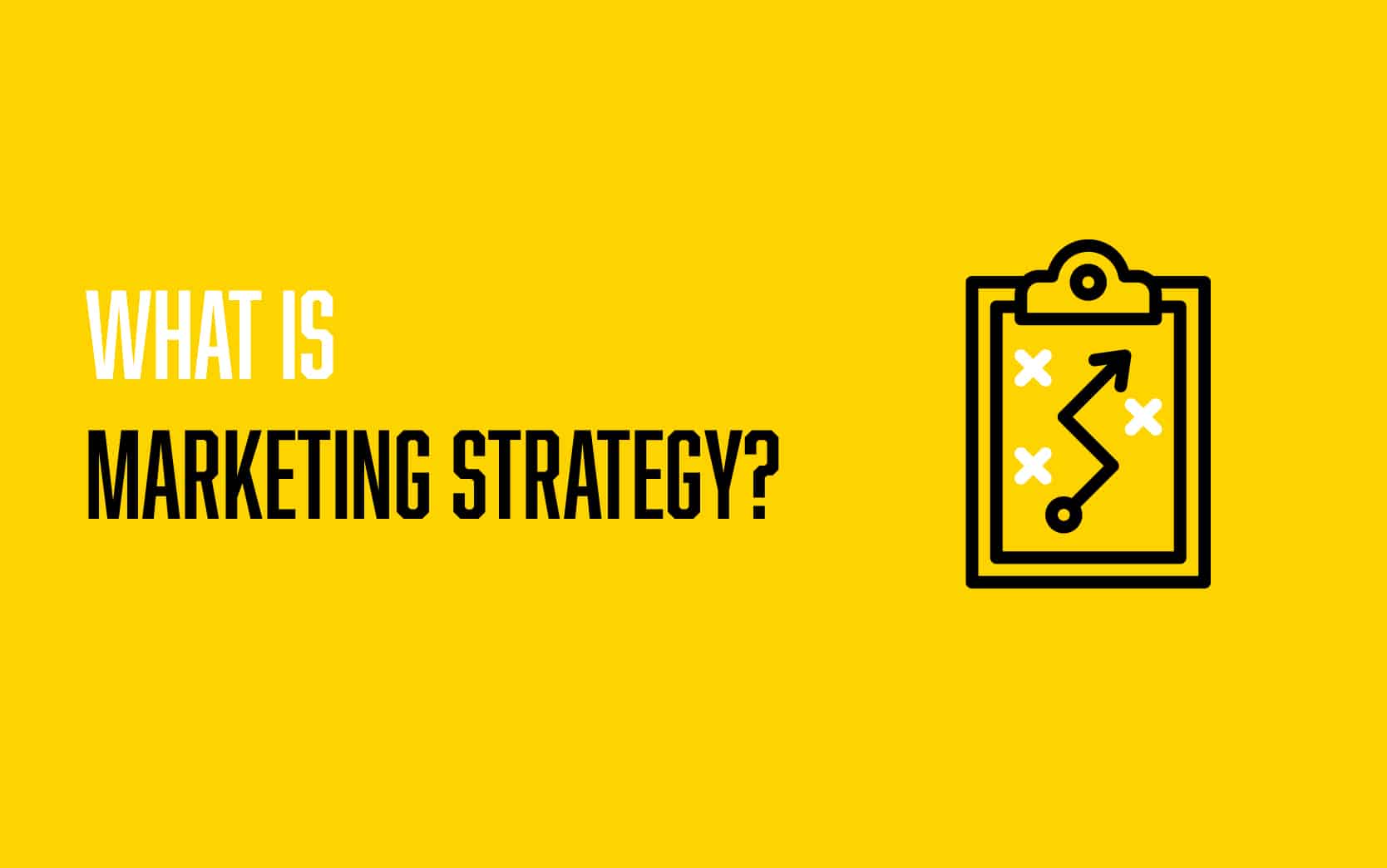
What is Digital Marketing Strategy?
While they might be complicated beasts to build in the first place, the premise of a marketing strategy is pretty straightforward:
A digital marketing strategy is a structured plan, built in line with your company’s overall goals, to build more awareness of your business in the market and generate more quality opportunities to grow the business as a result.
A quality marketing plan also has to be measurable at all stages.
Grumpy-looking marketing pioneer John Wanamaker once famously said:
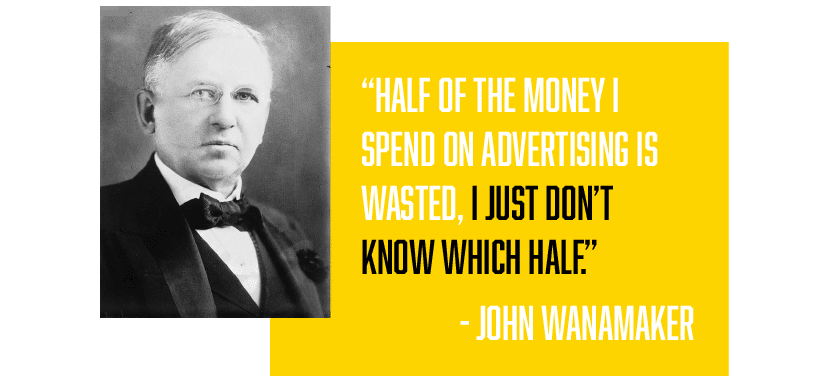
And back in the mid-1800s when he said this, it was probably near impossible to work out which half of the budget was going to waste – hence the expression on John’s face.
But these days, with more data points and tracking tools online than Mr Wanamaker could’ve shaken his top hat and cane at, the exact opposite of this statement is true of any marketing strategy worth its salt.
Aside from track-ability though, it’s key to keep in mind that there’s no such thing as a one-size-fits-all marketing strategy.
A social media-heavy marketing strategy may have worked well for your mate’s finance firm, but that doesn’t necessarily make it the right way to grow your manufacturing business.
Even businesses with a near identical product or service will need a unique strategy for marketing, sales and business growth.
When you start to create a marketing strategy, think about where your business is now, what you did to get where you are and – most importantly – where you want to go from here.
This will make it clear exactly how a digital marketing strategy can help you to reach these goals, while also considering the tactics you have previously used in order to amplify previous successes and nip anything unsuccessful in the bud.
At the bare bones level of things, a strategy’s planning stage should include the following things:
- Proper, Detailed Research – Before you begin to plan anything and before you even think about creative ideas, you have to do research on the market and your competitors. Without that any ideas or tactics you think about will be built on the sand, with no solid foundations in place and a high chance of falling over. Your initial research is the rock your strategy is built on.
- An Outline of Your Customers – As part of that research, it’s key to outline your ideal customer profile or buyer personas. What do they look like demographically? How and where can you reach them online? What are the pain points you can solve for them? The more detailed you are here, the better.
- Marketing Tools – Finally, do some real reading and research around the sorts of tools you can use to implement your strategy and get the wheels in motion. Technology now exists to automate much of your marketing output, as well as to track and analyse it; Excel spreadsheets and basic mail senders are a thing of the past.
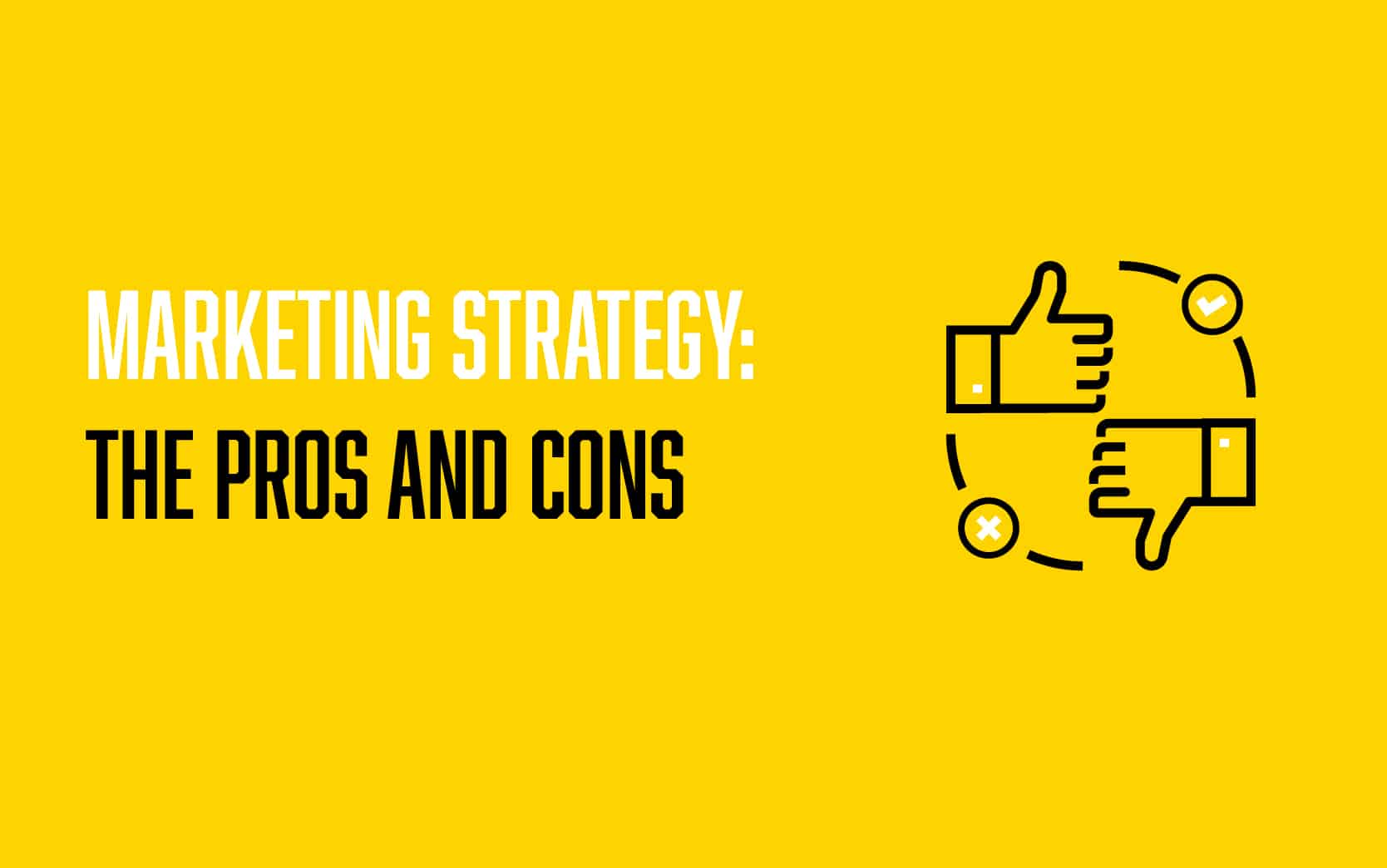
What are the Pros and Cons of a Digital Marketing Strategy?
Before getting into all of the different marketing strategy cases, let’s take a look at why you need to create such a detailed plan, rather than just trying out a few tactics.
When we talk about a “defined” marking strategy, we’re talking about a strategy which is clear to all of your key stakeholders, not just the marketing team.
Marketing should benefit everyone from your sales team and directors to your customer support team and account managers,
Everyone needs to understand at all times what the goals of marketing are and how they can help to implement the strategy.
In a lot of businesses, especially those which are heavily sales-led, marketing can be looked down upon as a nice-to-have rather than a must.
But done right for even a short period of time, a proper digital marketing strategy will have even the most old-school of sales directors scratching their heads, raising their eyebrows and wondering, “Why on earth didn’t we do this sooner?”
Better brand awareness, quality lead generation and higher close rates are all symptoms of a strategy well implemented, all of which are strongly desired by any sales leader worth their salt.
To achieve these things and blow the proverbial socks off your entire team, your marketing strategy has to be all-encompassing, assessing every aspect of your business, marketing and competitors.
Once this research has been carried out and the tactics have been implemented to match, the pros of your marketing strategy will become apparent to all.
Pros
- Growth, growth and more growth – It goes without saying that the number one pro of implement a marketing strategy is new streams of growth. Done right, you’ll start to capture types of leads you’ve never captured before, most of which will be warmer and better informed of your offering the cold sales outreach would allow for.
- Take great market share – By making moves your competitors aren’t making, you’ll start to generate results they simply aren’t. Becoming a forward-thinking business in all senses will naturally begin to position you as a market-leader in your space and subsequently make your competitors look out-dated and backwards.
- You can better understand your customers – All of the research that goes into creating a digital marketing strategy can ultimately help you to better understand customers, ensuring that it’s not just your marketing which improves, but your sales and support, too.
- Keep everyone on the same page – It’s common for businesses to lack a single direction and vision, with different departments often viewing your company in entirely different ways. The initial stages of a marketing strategy’s development will eliminate all of this but taking into account everyones’ views to create one, company-wide vision.
- You can measure everything – When you implement a quality marketing strategy, you will know without a doubt what’s working and what’s not. This extra data is vital in taking your understanding of how the market is really moving to the next level.
- Improved close rates and ROI – Generally, a digital marketing strategy can help you to close more deals and improve your sales ROI. By choosing the right marketing plan, you can make sure your sales team have all of the ammunition they need to close more deals than ever before.
Reading through the above list, it might be difficult to see any negatives in implementing a marketing strategy.
More leads, more profit, more growth. Who wouldn’t want that?
But with that said – and while this might sound a bit weird coming from a marketing agency – there are some cons involved.
First of all, it’s not easy to develop a quality marketing strategy.
It takes time, investment, trial, error and some serious expertise to make it work.
What’s more, making no two ways about it, the whole thing is a risk.
There are no guarantees involved and your spend will fall in line with the old hockey stick-approach to investment, going down before it goes back up.
Many businesses also fall into the trap of just having a go themselves, letting the sales team send out email campaigns and getting the IT department to build out the landing pages because they know how and getting the intern to have a crack at social media because ‘they’re young’,
The end goal of implementing a solid strategy is sales and business growth, but getting to the point at which your strategy works can be tough and require investment to get to.
Cons
- It takes time – When you create an effective digital marketing strategy, it’s going to take some time and effort. It’s key to keep in mind that you’re unlikely to strike gold straight away and testing is always ket, but putting the time to research, plan and test a strategy in now will reap huge rewards in the future.
- It isn’t easy to carry out research – You must research a marketing strategy and analyse your market, product, customers, competitors and data relating to search engines. Working out exactly how to go about carrying out this kind of audit is difficult to say the least, but remember that the more information you collect, the more strategic you can be about the way you market.
For a free roadmap to creating a marketing strategy, click here.
- It requires updates over time – It’s one thing to develop a strong strategy, but to successfully tweak, measure and develop it over time is another. The business world is kaleidoscopic and the landscape constantly changing. What works today may not work tomorrow, and what didn’t work last year might work today. Constantly measuring, tweaking and developing your strategy is a skill in itself and something which requires true expertise to accomplish.
- It requires genuine expertise – Leading on from the last point, true knowledge of sales, marketing and business growth in general is required to build a strategy. Some businesses will not put together a digital marketing strategy because they don’t have any type of knowledge to do so. And “just having a go yourself” can be an incredibly costly way to go, too.
All of this negativity may sound strange coming from a marketing strategy consultancy, but we want to be frank with everyone who reads this blog or speaks to us on the phone.
We all too often speak to directors who have tried marketing in the past and don’t believe in it because they didn’t get much back from it.
But as with anything, there’s a big difference between doing something and doing it well.
Developing and implementing a marketing strategy is a risk, absolutely.
Sales and marketing always is.
But the best way to limit that risk is by working with experts to plan and carry out the work, ensuring no stone is unturned in the planning and research stage.
Without that, however, that risk grows bigger, the odds get longer and those cons will come to fruition far sooner than the pros.
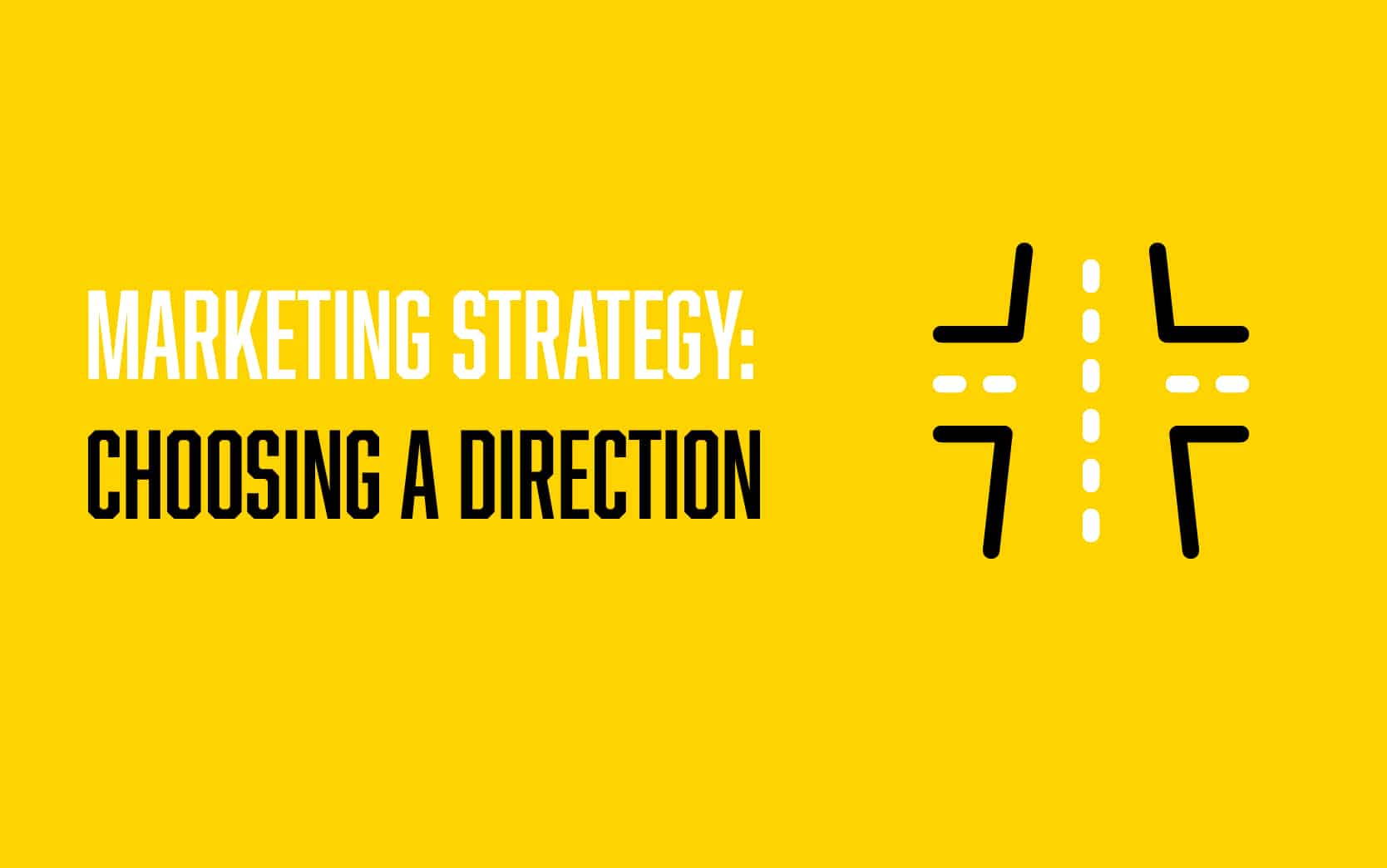
Examples of Marketing Strategies: Choosing the Type of Marketing that’s Best for Your Company
Once you’ve developed your digital marketing strategy, you’ll obviously have to put some tactics into place to make it all happen.
There are many different ways you can go about this, with dozens of tactics and hundreds of tools that you can put into place.
Working out the right tactics therefore is key in ensuring the journey to your end goals is as short and profitable as possible.
Tactics shouldn’t just be look at on an individual basis, but planned out and chosen based on how they interlink.
Below we’ve covered some of the most popular tactics businesses implement, as well as why you’d go ahead with them to help you assess which are right for you.
Please click here for more digital marketing tactics.

1. Content Marketing
One of the best examples of a marketing tactic that offers value to almost all companies is content marketing.
In short, a content marketing strategy involves writing and publishing content online – both on your website and on others – on the topics relevant to your business and the challenges you solve.
Creating a blog helps to obtain more leads since it boosts your visibility in search engines like Google, while also giving your site visitors information to influence their buying decisions.
Content Marketing is a tactic which goes hand-in-hand with SEO. The higher your content is in quality, the better search engines will index it.
The more quality content you have, the higher Google will rank you, increasing your chances of inbound enquiries.
This also gives you the chance to educate your prospects and build trust through the content you write and share.
Is content marketing the right tactic for your business?
Well, since blogging can have a positive influence on any company in any industry no matter what type of service or product you are providing, the answer is a resounding ‘yes!’
The tricky part is in the research, knowing what to write about and how to write it. You can’t just write any old thing on your website and expect it to help your ranking position.
Most companies put write blogs solely for their own websites because it’s a great way to improve SEO and to attract traffic from search engines.
That said though, it’s also incredibly powerful to write content for other websites in your space, such as relevant news outlets such as industry-specific magazines.
With regards to SEO, having other websites directly linking back to yours is very powerful indeed, especially when that website is relevant to your industry and writes quality content on the same subjects as you.
Each link back is known as a backlink, and the likes of Google love them, so be sure to include a backlink strategy as part of your overall content approach.
Key considerations
- Who are you writing for and what are their challenges?
- How can you capture their data off the back of a site visit?
- What writing style and tone of voice will suit your business best?
- How can you say something different to your competitors?
- What are the best distribution channels for your content?

2. Social Media Marketing
Social media marketing is another excellent tactic for companies of all shapes and sizes.
Unless your target market is over 70s, under 5s, your prospects will be out there somewhere on social.
The question is where and how can you reach them?
The go-to platform for most B2B businesses is LinkedIn due to its nature.
But while the platform can be great, there’s a lot of noise on there with similar companies selling similar things that you’ll have to compete with.
That can make less obvious, typically more B2C platforms like Facebook, Instagram and Twitter far more effective as sales and marketing tools.
It’s also key to decide on a strategy to grow your social following with relevant followers.
It’s like the old tree falling and nobody there to hear it scenario:
“If a company spends 4 weeks researching social and writing out content only to post to a grand total of 0 followers, have they even Tweeted?”
Is social media marketing the right choice for your business?
Social media marketing can be used by any company that wants to begin a conversation with potential customers online.
Most consumers are active on a minimum of at least one social media network and many will even follow a brand to keep on top of the latest news.
The question here is not about if you should or shouldn’t be on social media.
Instead, it’s a question of thinking long and hard about which strategy is right for you.
Instead of trying to be everywhere at one time, find the one or possibly two channels that your target customers are using and spend time growing that audience.
Remember, not all companies have the resources, time, or expertise to be effective on a social network.
Though you probably have your own personal social media accounts, the best practices and rules are very different when using social media for your company. Managing social media can be a job in itself.
Finally, it’s also key to consider paid advertising: if you really want to get in front of the right people and get your social channels off the ground, paid ads can be one of the best, most-effective ways of making it happen.
You’ll need to figure out commonalities between your prospects in order to make sure your news, tweets and content end up on their feed and – more importantly – have some clever ideas to get them to engage with you when you do.
Key considerations
- Which platforms are right for you?
- How are you going to grow your followers on each platform?
- What types of content can you use to engage with your followers?
- What are your competitors doing well which you can implement?
- What are the commonalities between your followers which you can leverage in your paid ads strategy?
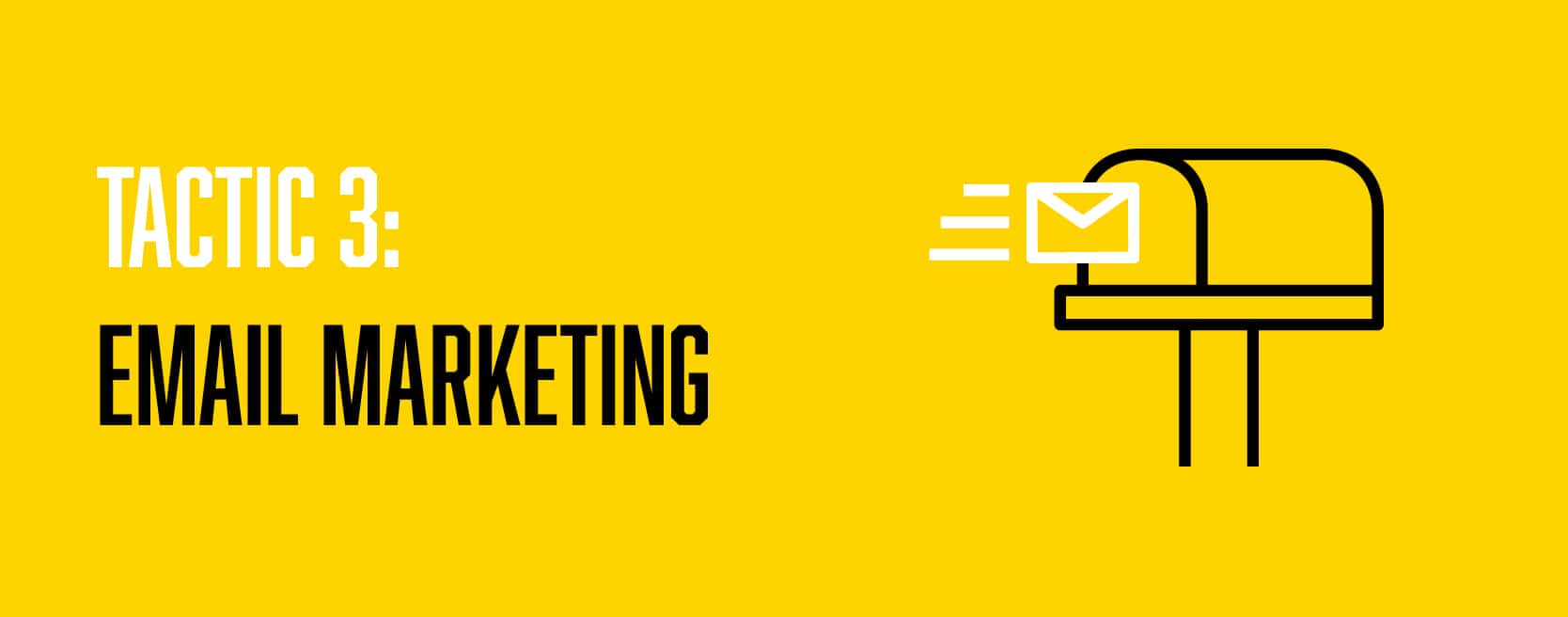
3. Email Marketing
Another effective tactic to add to your marketing strategy’s arsenal is email marketing.
There are two keys to a successful email marketing strategy:
1. Identifying and writing quality content that your clients actually want to read.
2 Figuring out the best way to capture data on your site to build up your mailing list..
Once you have a strategy in place to capture quality leads online, your mailing list will slowly-but-surely begin to grow.
But you will only attract people to your site in the first place if what you’re saying is interesting and relevant.
Without that solid content marketing strategy in place, your email marketing strategy will fail miserably.
Once you have that in place, however, you effectively turn your website into a hub of knowledge for your target audience, in turn, growing that all important mailing list.
And when that begins to build organically, you’re really in business.
It’s also possible to create email marketing workflows which allow you to
Is email marketing a good idea for your business?
This type of tactic is one of the most powerful in marketing and is ideal for all companies.
People who have signed up to your mailing list or downloaded a guide have openly admitted to you that they’re interested in what you do and want to hear more from you.
This gives you a fantastic opportunity to educate your prospects on your company’s values and send them more useful content, building that all-important trust way before the sales team even gets involved.
So yes, odds are, it’s right for your business.
Key considerations
- How will you capture more people on your website?
- Is your content strategy strong enough to engage people once they do submit their details?
- How do your competitors use email marketing? (Sign up to their mailing lists to find out).
- At what point will you decide that a lead is warm enough to pass from the marketing team over to sales?
- Which email marketing system is right for your business?
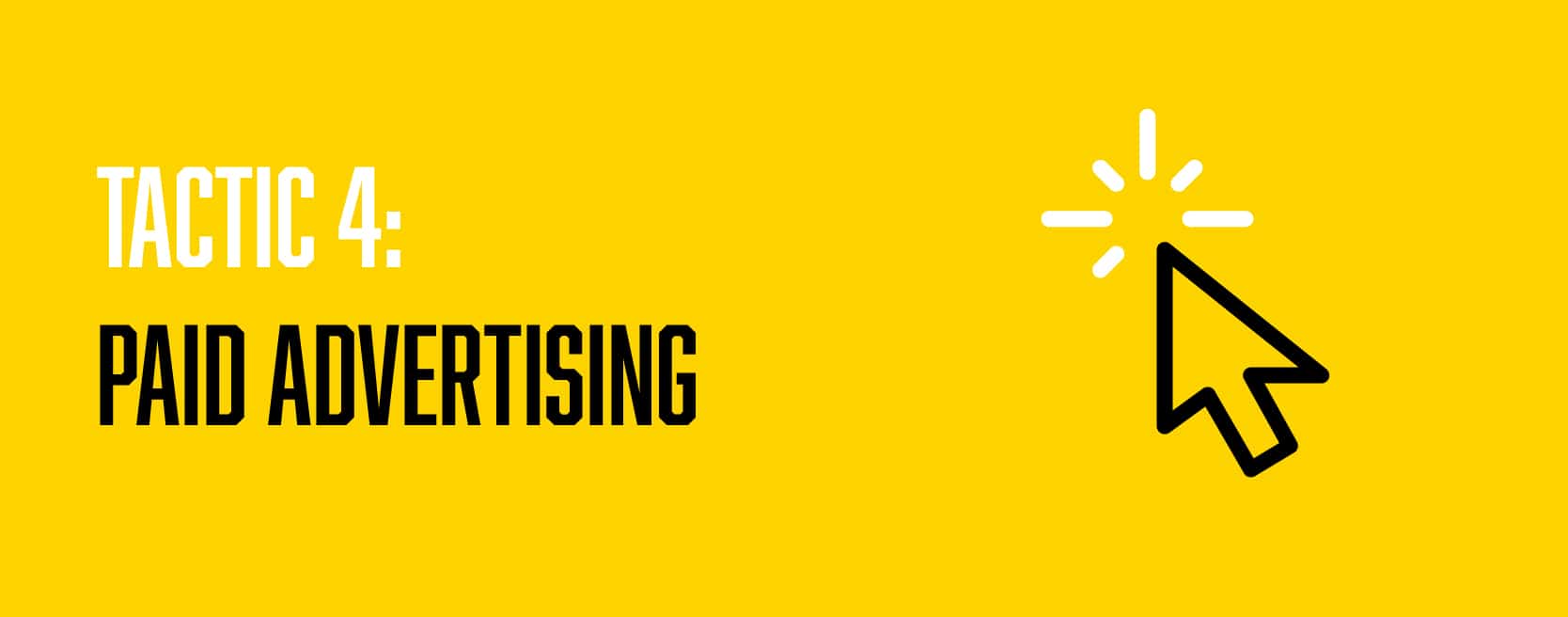
4. Paid Ads
The final digital marketing tactic which is among the most popular around is paid ads.
As we’ve already mentioned, search engine optimisation is one of the key areas a content strategy needs to focus on.
But paid ads allow you to skip the queue and get right to the top of the search results instantly – a very powerful tool, indeed.
Every search engine allows you to advertise on their listings against certain search terms and keywords.
The key is in carrying out quality research to find out exactly what your prospects are searching for so you can get your ad on their screens.
There’s a real art to PPC and it can be very costly done wrong, attracting a lot of poor quality traffic or even just people looking to be hired rather than to hire you.
Are PPC ads right for your company?
This one is less obvious than the other tactics.
The first step in answering this is to make sure your website is ready to capture leads.
If it’s not then the answer is a resounding no.
The research will be telling for this tactic, too, outlining the estimated costs per click will allow you to gauge whether or not it’s going to be a worthwhile tactic.
That said, PPC ads can be very powerful and help you to instantly jump above competitors who might’ve spent tens of thousands to get their site where it is organically.
It’s important to remember that PPC advertising is complicated and your best bet is to focus on both PPC and SEO at the same time.
Key considerations
- Is your website designed and geared to capture leads?
- Do you know what your prospects are searching for?
- How do your competitors use PPC to drive leads?
- What are the untapped keywords you can advertise on?
- How should PPC be used alongside your SEO strategy?
In Summary: A Guide to Get You Started?
A well-designed digital marketing strategy is often exactly what an SME needs to grow their business.
Marketing can help you to improve the awareness of your business in the market, drive more leads and – most importantly – win new customers.
If you’re thinking about implementing a strategy to take your business growth to the next level, our free Marketing Strategy Roadmap is a perfect place to start.
